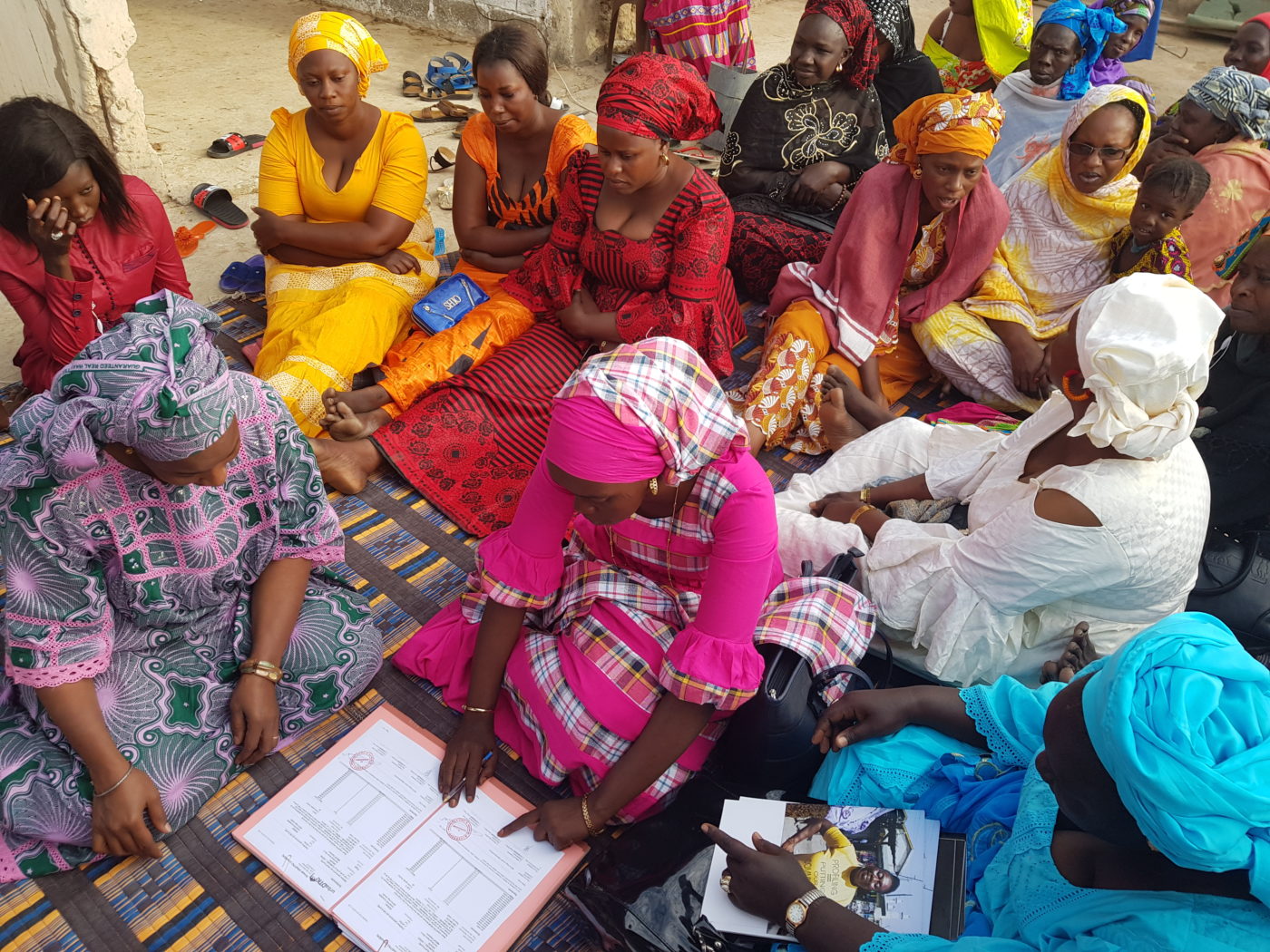Around 1.8 million people live in informal settlements on the outskirts of Senegal’s capital city, Dakar. Severe flooding as a result of rapid urbanisation and climate change has become a recurring problem in these neighbourhoods, damaging homes and creating unsanitary living conditions. The Housing and Living Environment Improvement Programme for Vulnerable People in Precarious Neighbourhoods is working to improve quality of life and build resilience to climate change in informal settlements across Senegal. The programme is led by the community, organised into the Senegalese Federation of Inhabitants (a federation of women’s saving groups), with the support of local NGO urbaSEN.
Women make savings and take out loans from the Federation’s revolving fund to implement improvement work to homes, sanitation infrastructure and public spaces. Due to fundraising work and partnerships, the revolving fund is mainly provided by European international cooperation agencies. UrbaSEN provides technical support and training for residents, who carry out drone-mapping and supply data to municipal authorities. This data also helps generate Certificates of Occupancy as a first step towards land tenure regularisation.
The programme has successfully integrated 18 municipalities into its work and attracted support from national and international institutions. It has introduced an early-warning system for floods and developed sustainable building materials using clay and an invasive plant species. More than 20,000 people have directly benefitted from the project so far, including 15,000 members of the federation, 8,000 people whose homes have been upgraded and 600 craftspeople who have been trained.








